Charleston Currents #12.46 | Oct. 5, 2020
TIMBER! The folks at Winthrop Tree Service took down this huge pine tree last week, surely as a precaution to keep two nearby homes safe during high winds. Photo by Andy Brack.
TODAY’S FOCUS: Former City Paper publisher passes away
COMMENTARY, Brack: Charleston key in Revolutionary, Civil wars
IN THE SPOTLIGHT: Charleston Gaillard Center
NEWS BRIEFS: Offshore wind in S.C. in peril thanks to memo, group says
FEEDBACK: Send us your thoughts
MYSTERY PHOTO: Red bridge
CALENDAR: Take a look at what’s going on
NEW BOOK: Get your copy of new history book today
City Paper’s Mermer passes away Saturday
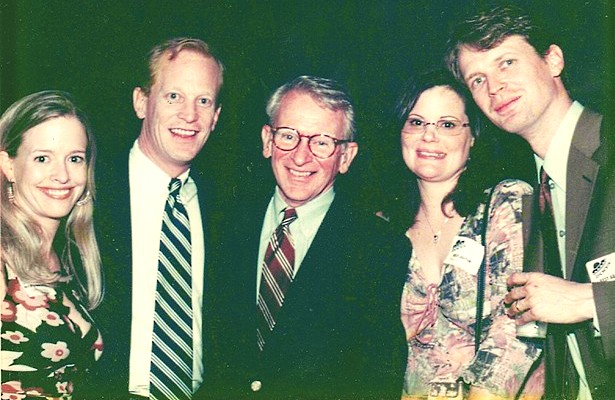
Christine Mermer, Noel Mermer, former Charleston Mayor Joe Riley, Stephanie Barna and Blair Barna in a 2003 photo.
Staff reports | Noel Mermer’s adult beverage of choice was Budweiser. The colder it was, the bigger the smile on his face. Many days after working on the latest edition of the Charleston City Paper, he’d stop by a favorite watering hole, have a couple of drinks with friends and talk over the day. There would be big laughs and snarky jokes, interspersed occasionally with a dose of the serious.
Longtime friend Raymond McGuire, once a bartender at the Bubble Room, often would welcome Mermer, the newspaper’s publisher, and co-owners Stephanie Barna, the editor, and Blair Barna, the advertising director.
“Stephanie would drink martinis and Noel would have Budweisers,” said McGuire, named the city’s best bartender by the newspaper in 1999 and 2000.
Noel Stephen Mermer, 53, died late Saturday after a long battle with amyotrophic lateral sclerosis, also known as ALS or Lou Gehrig’s disease. He is survived by his wife Christine, and sons, Noel and Bennett. He also is survived by a sister, Sheila Mutz (Bryce) of Atlanta, and nephews, Bryce and Blake Mutz, also of Atlanta, and his in-laws, Suzanne Boren of Mount Pleasant, and Cecil (Cindy) Boren of Greensboro, North Carolina.
“As a highly active, Type-A personality, I have to say it’s been hell on earth. ALS sucks,” Mermer wrote in December 2018 when he described his battle with the disease. “A motor neuron disease, it affects the function of the nerves and muscles, and the way it affects each person varies. There are two types of ALS, sporadic and familial. I have the sporadic version, meaning my two sons are not at risk genetically.
“We finally told our boys in July (2017), when their ages were 9 and 12. They have emerged as even better versions of themselves as their helpfulness, leadership, compassion and kindness have become even stronger. We are both very proud of what wonderful young men they are and how much they help.”
Mermer and the Barnas started their “scrappy little newspaper” in 1997 at the dawn of the modern Charleston renaissance. “Rents were cheap, bars were open all night long, and Granny’s Goodies — our first advertiser — was a mecca of hippie weirdness,” Mermer and the Barnas wrote last year.
The publication dedicated its coverage to food, music, the arts and local news. It was “more about the fun stuff going on than the bad stuff happening. Not only did we get to observe Charleston transform from a sleepy Southern town into a much-less-sleepy Southern town, but sometimes we had influence on that change too, writing stories and conducting investigations that highlighted issues and problems that weren’t being looked at by the daily newspaper, which at the time was way more entrenched in the South of Broad aristocracy than it is these days.”
In October 2019, the owners sold the newspaper to a publishing partnership owned by Ed Bell of Georgetown and Andy Brack of Charleston.
“We are incredibly saddened by Noel’s passing,” said Brack, the current publisher. “His energy, determination and spirit to excel continue to permeate the pages of the City Paper — and always will.”
Last year in announcing the sale, Mermer said the City Paper had the “best audience in America. This is exciting news for our community because it will allow an experienced local ownership team to take the reins of what has become Charleston’s preferred news outlet for students and young families who want the best local information on arts, culture, music, and more.”
McGuire recalled how Mermer was driven to make the paper successful with his team.
“A testament to that success is how many employees have been here as long as they have been,” he said. “We used to laugh when the first person was here eight years.” Today, some of the City Paper team have been working at the newspaper for more than 15 years.
At the end of his 2018 column, Mermer concluded, “We are extremely grateful to the friends and family who have helped carry us through this terrible past year and a half. We are thankful for all the blessings we have, despite this disease. And we will likely create a way to fundraise to further find a cure to ALS. Thank you all for your love, concern and support.”
Funeral arrangements are being handled by J. Henry Stuhr Funeral Home. The family requests no flowers. In lieu of flowers, memorial contributions may be made to a new foundation that will be announced soon.
Noel Stephen Mermer, 1967 to 2020. Rest in peace.
Charleston Currents is a sister publication of the City Paper.
Charleston key in Revolutionary, Civil wars
By Andy Brack, editor and publisher | Bring up past American wars and it’s pretty certain you’ll soon get into a disagreement about something. Example: Which was more important — the Revolutionary War or the Civil War?
 Some people focus mostly on the Revolutionary War, saying without the success of patriots in South Carolina and other colonies that we may not have been able to test our unique experiment with democracy.
Some people focus mostly on the Revolutionary War, saying without the success of patriots in South Carolina and other colonies that we may not have been able to test our unique experiment with democracy.
Others intently study the complexities of the Civil War, its strategies, its inventions, its terrible tool and its enduring impact being felt in society today in everything from polarized bickering about the Confederate flag to racially-motivated killings and violence.
Part of the newly-released 350 Facts About Charleston highlights the influential roles of people and events in the Holy City during these two deadly conflicts. Here’s a preview:
Third time was charmed for British
The British failed in the first attempt to take Charleston in 1776 in what was the first major naval victory for patriot forces. South Carolina troops repelled an attack on a palmetto fort on Sullivan’s Island. Three years later, the British made a second attempt to capture Charleston while the main Continental Army was in Georgia. British Gen. Augustine Prevost marched from Savannah to Charleston, but as Gen. William Moultire’s small force was holding its own, the Continental Army returned from Georgia, fighting back the British.
The Redcoats mounted their strongest attempt to take the Holy City in 1780 when Sir Henry Clinton’s 10,000-man army, supported by the Royal Navy, laid siege to the city from April 1 to May 12. It was the longest siege of the Revolutionary War. It ended when Charleston and 6,000 colonial soldiers surrendered. The loss is considered the worst defeat of the Continental Army during the Revolutionary War and gave the British a foothold to try to retake the Southern states.
Favorite story in the book
Charleston patriot Christopher Gadsden, remembered today for his yellow “Don’t Tread On Me” rattlesnake flag, first advocated for colonial independence from the British in 1766 under a live oak that would come to be known as the Liberty Tree. A bronze plaque by the Sons of the Revolution marks the spot near Alexander Street where the tree once stood. Gadsden, along with his fellow revolutionaries, led public meetings to protest the British Stamp Act and tea tax, calling themselves the Sons of Liberty.
So here’s where the story about the Liberty Tree gets interesting. When the British occupied Charleston from 1780 to 1782, they cut down the Liberty Tree and burned its stump to prevent it from becoming a patriot shrine. But they didn’t think about the tree’s pesky roots. After the war, Judge William Johnson retrieved a root and had it made into cane heads. One of them was given to Thomas Jefferson, author of the Declaration of Independence. Pretty neat, huh?
No deaths during “shots heard around the world”
On April 12, 1861, Confederates opened fire on Fort Sumter at 4:30 a.m. from multiple positions surrounding the fort — but not from the peninsula as many believe. Thousands of spectators filled rooftops and lined the Battery to watch the barrage. After the 34-hour bombardment, Union Major Robert Anderson, commander of Fort Sumter, surrendered. Incredibly, no one died during the engagement in which more than 3,000 shells were fired. It wasn’t until an accidental explosion during the surrender ceremony that the first casualty of the Civil War, Daniel Hough, a Union soldier, was claimed.
Fort Sumter remained an important bastion after the first barrage
Confederate forces continued to occupy Fort Sumter, using it to hold a defense of Charleston Harbor after P.G.T. Beauregard captured the bastion in 1861. Better armed and finally finished, the fort allowed the Southern military to create a valuable hole in the Union blockade of the Atlantic seaboard. Two years later, in 1863, the Union would launch its first assault against Fort Sumter, when Rear Admiral Samuel Francis Du Pont attempted a naval attack on the port city of Charleston. He arrived in Charleston with a fleet of nine ironclad warships, but in collaboration with Fort Sumter, Confederate batteries commanded by Beauregard unleashed a barrage of cannonfire against the fleet, dealing over 500 hits and forcing the fleet to retreat.
- You can find out more about the book online at CharlestonFacts.com.
Have a comment? Send to: editor@charlestoncurrents.com.
Charleston Gaillard Center
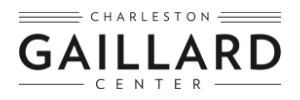 Charleston Gaillard Center provides the Lowcountry with a world-class performance hall, elegant venue space and vibrant educational opportunities that inspire dynamic community throughout the area through the power of the performing arts. The Center’s vision is to enrich the diverse community of Charleston with artistic and cultural experiences that are accessible and unique, and to serve as an educational resource for generations to come.
Charleston Gaillard Center provides the Lowcountry with a world-class performance hall, elegant venue space and vibrant educational opportunities that inspire dynamic community throughout the area through the power of the performing arts. The Center’s vision is to enrich the diverse community of Charleston with artistic and cultural experiences that are accessible and unique, and to serve as an educational resource for generations to come.
Did you know that the Charleston Gaillard Center is a 501c3 non-profit that works with over 25,000 students each year from the tri-county area? Promoting education is one of the core values of the Charleston Gaillard Center and an integral part of our mission. By broadening the reach of arts-education in the Lowcountry the Gaillard Center encourages learning through the arts and serves as a powerful tool for student achievement and personal development while providing people of all ages with the opportunity to cultivate and grow their talents and appreciation for the arts. To learn more about our education initiative, click here: www.gaillardcenter.org/outreach.
For more information, click the links below:
- Buy tickets and see our great events
- Become a member today
- Plan your event at the Charleston Gaillard Center
- Learn about our education and community programs
- Contact the Gaillard Center.
- To meet all of our underwriters, click here.
Offshore wind in S.C. in peril thanks to memo, group says
Staff reports | A presidential memorandum that halts offshore drilling and testing off South Carolina waters also puts an end to the burgeoning offshore wind industry, clean energy advocates say.
The memo initially seemed to be good news for conservationists: President Donald Trump recently signed a memo halting new leases for offshore drilling exploration for South Carolina, North Carolina, Georgia and Florida from July 1, 2022, until June 30, 2032.Sure, it could easily be undone with another memo, it doesn’t apply to any current leases already issued and it wouldn’t stop seismic testing completely. But it was something and appeared to be in the direction South Carolina officials have pushed: putting an end to chants of “drill, baby, drill” in Palmetto waters.
The Southern Alliance for Clean Energy’s (SACE) Chris Carnevale of Charleston said he was “surprised” by the moratorium. “When that came out, my brain was not even thinking about offshore wind,” he said.
Turns out, that got banned too, Bloomberg News reported this week. “The withdrawal includes all energy leasing, including conventional and renewable energy, beginning on July 1, 2022,” Bureau of Ocean Energy Management spokeswoman Tracey Moriarty told Bloomberg News.
South Carolina has been hailed as a potential offshore wind energy leader in recent years. A 2019 report said the state could land a $70 billion industry, create thousands of jobs, and generate more power than its consumers needed.
“South Carolina has worked for over a decade to get prepared for offshore wind energy,” Carnevale said. “We have a number of businesses in South Carolina that are in the wind energy supply chain.”,North Charleston is home to a wind turbine research center with Clemson University, making it a key spot for wind power innovation.
In other news:
![]() Witness signatures not* required on absentee ballots. The asterisk says it all: The fight over whether witness signatures will be required on absentee ballots in South Carolina continued this week. It landed in The Washington Post and on the Supreme Court of the United States blog. As of Friday morning: You don’t need a witness signature on your absentee ballot, but perhaps you should consider this popular wisdom: “It’s better to have it and not need it, than to need it and not have it.”
Witness signatures not* required on absentee ballots. The asterisk says it all: The fight over whether witness signatures will be required on absentee ballots in South Carolina continued this week. It landed in The Washington Post and on the Supreme Court of the United States blog. As of Friday morning: You don’t need a witness signature on your absentee ballot, but perhaps you should consider this popular wisdom: “It’s better to have it and not need it, than to need it and not have it.”
Festival gets grant. Black Ink: A Charleston African American Book Festival will get a $5,000 grant from the Literary Arts Emergency Fund for its next free festival, which will be virtual for three days starting Jan. 14, 2021. “Now more than ever, the festival’s impact is even greater due to the existing public dialogue taking place about equality and race,” Black Ink’s committee chair Djuanna Brockington said in a press release. “There is a current shift occurring in the book publishing industry with a greater focus on diversity among writers. Amid this movement, Black Ink is positioned to continue highlighting the importance of diversifying our literary landscape and amplifying those voices.” The free festival will host New York Times bestselling author Kwame Mbalia as its keynote speaker. Mbalia is a middle-grade writer who authored the novel Tristan Strong Punches a Hole in the Sky.
Statehouse Report’s Lindsay Street contributed to this report. Have a comment? Send to: editor@charlestoncurrents.com
Got something to say? Let us know by mail or email
We’d love to get your impact in one or more ways:
Send us a letter: We love hearing from readers. Comments are limited to 250 words or less. Please include your name and contact information. Send your letters to: editor@charlestoncurrents.com. | Read our feedback policy.
Tell us what you love about the Lowcountry. Send a short comment – 100 words to 150 words – that describes something you really enjoy about the Lowcountry. It can be big or small. It can be a place, a thing or something you see. It might be the bakery where you get a morning croissant or a business or government entity doing a good job. We’ll highlight your entry in a coming issue of Charleston Currents. We look forward to hearing from you.
Red bridge
This mystery photo should be pretty easy. What and where is it? Send to editor@charlestoncurrents.com. And don’t forget to include your name and the town in which you live.
Our previous Mystery Photo
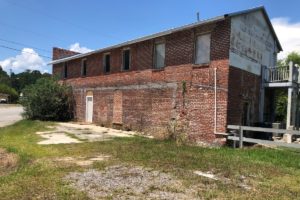 Our Sept. 25 photo, “Reader sent this week’s tough photo to ID,” shows a building that’s just a few yards from the Yemassee train station where hundreds of thousands of recruits met Marine Corps drill sergeants before heading to basic training at Parris Island. The photo, sent by Florence reader Barry Wingard, shows the building in disrepair, although it apparently is being used as a church today.
Our Sept. 25 photo, “Reader sent this week’s tough photo to ID,” shows a building that’s just a few yards from the Yemassee train station where hundreds of thousands of recruits met Marine Corps drill sergeants before heading to basic training at Parris Island. The photo, sent by Florence reader Barry Wingard, shows the building in disrepair, although it apparently is being used as a church today.
This was a tough one, so congratulations to these two eagle eyes for identifying the photo: Bill Segars of Hartsville; and George Graf of Palmyra, Va. Graf shared that the “building was built in 1912 and served as a general merchandise store and also served as a receiving station for U.S. Marine recruits.”
- Send us a mystery: If you have a photo that you believe will stump readers, send it along (but make sure to tell us what it is because it may stump us too!) Send it along to editor@charlestoncurrents.com.
![]() Safe Sounds at Firefly: Saturdays through Oct. 31, Firefly Distillery, North Charleston. The distillery’s socially-distanced concerts are back with its fall Safe Sounds series. This week on Oct. 10: Departure, the ultimate Journey tribute band. Tickets ($110 for four) can be purchased in advance at citypapertickets.com. Show starts at 6:30 p.m.
Safe Sounds at Firefly: Saturdays through Oct. 31, Firefly Distillery, North Charleston. The distillery’s socially-distanced concerts are back with its fall Safe Sounds series. This week on Oct. 10: Departure, the ultimate Journey tribute band. Tickets ($110 for four) can be purchased in advance at citypapertickets.com. Show starts at 6:30 p.m.
Fishing rodeo: Oct. 10, James Island Yacht Club. The Coastal Crisis Chaplaincy will hold its second annual Lowcountry Bottom Fishing Rodeo as a benefit to help victims of traumatic loss. Lines will be cast at 6:50 a.m. Weigh-in will be 3 p.m. to 4 p.m. Registration is $50. Learn more.
Wine Down Wednesday: 5 p.m. to 7 p.m., Oct. 14, Old Towne Creek County Park, West Ashley. Guests will enjoy wine and live music from Mark Jackson, while experiencing the beauty of this natural site. A commemorative wine glass is included with your admission. Food truck fare will be available for purchase on-site from Southern Roots Smokehouse. Masked required. Cost: $15. More.
Sounds of the Lowcountry: 6 p.m., Oct. 23, Firefly Distillery, North Charleston. The Charleston Jazz Orchestra will pay homage to early jazz incubated by the Jenkins Orphanage Band, which produced jazz greats such as William “Cat” Anderson, Jabbo Smith and Freddie Green at this new CJO Live at Firefly series. Based on the rhythms of the Gullah/Geechee Culture, that Lowcountry Swing can be found in some of our favorite tunes – Until I Met You, Tuxedo Junction, and Porgy & Bess. From Ragtime to Broadway and everything in between, the CJO will explore the Sounds of the Lowcountry with music that is distinctly Charleston Jazz. Tickets are $30 and can be purchased at www.charlestonjazz.com or by calling the box office at 843.641.0011. Doors open at 5pm. Show begins at 6pm.
“Connections” on display: Through Oct. 24, Redux Contemporary Art Center, Charleston. The exhibition of works by Gret Macintosh features looks at physical connections between places, such as waterways, roads, and bridges that the artist has experienced over the last 15 years of living in the Charleston area. The exhibition is open 11 a.m. to 4 p.m., Mondays and Wednesdays; 11 a.m. to 3 p.m. Fridays; and by appointment. More.
From Etchings to Pastels: Through Nov. 29, Lowcountry Image Gallery, The Charleston Museum. The museum has partnered with the Pastel Society of South Carolina to present new interpretations of etchings stemming from the Charleston Renaissance Movement about 100 years ago. Learn more.
Online offerings:
- Gibbes Museum. You can enjoy lots of local art offerings through the website and social media accounts of the Gibbes Museum. At 10 a.m. on weekdays, the museum posts virtual readings and workshops on Facebook. Find more online.
- Avian Conservation Center. Access videos and live streaming presentations online to learn about what’s going on at the Center for Birds of Prey.
- Around the world. You can visit 500 museums across the world online through this Google amalgamation of sites.
If you have any online events, drop us a line (editor@charlestoncurrents.com) and make sure to put “Online event” in the subject line. Similarly, if you’ve got cool ideas for stuff to do while in isolation at home, send them our way.
Get your copy of new history book today
 Check out Buxton Books, Blue Bicycle Books, Mr. K’s Used Books, the Charleston Convention and Visitors’ Bureau, Firefly Distillery, Charleston Animal Society and Captain’s Comics for copies of a new book of historical facts about Charleston, aptly titled 350 Facts About Charleston, will be in Lowcountry-area bookstores this week, but you can order a copy today. More locations coming.
Check out Buxton Books, Blue Bicycle Books, Mr. K’s Used Books, the Charleston Convention and Visitors’ Bureau, Firefly Distillery, Charleston Animal Society and Captain’s Comics for copies of a new book of historical facts about Charleston, aptly titled 350 Facts About Charleston, will be in Lowcountry-area bookstores this week, but you can order a copy today. More locations coming.
The staff at our sister publication, the Charleston City Paper, pulled together fun and arcane information about the Holy City to illuminate its deep, rich history from its founding in 1670 until this year. (That’s, umm, 350 years!)
Charleston disc jockey Richard Todd (105.5 The Bridge) told listeners he thought the book was great and will be popular. Included in the 224-page book are details on early settlers, the wars (Revolutionary and Civil) and the struggle for civil rights by descendants of enslaved Africans. You’ll learn about food (Charlestonians have loved to drink wine for centuries), books, people, music, culture and much more.
Bonus: Talented South Carolina cartoonist Robert Ariail offers 12 illustrations that should make a great calendar someday.
- Preview the book by visiting CharlestonFacts.com.
As more people stay home to deal with the coronavirus crisis, people are looking for things to do. You can find some fun things to do online in our calendar section below, but let us also encourage you to FORWARD your issue of Charleston Currents to your friends and encourage them to subscribe. It’s got a great price, as you know: Free! We hope they’ll enjoy our coverage.
- DONATE. Now also would be a great time to contribute as we deal with the crisis. In advance, thank you.
OUR UNDERWRITERS
Charleston Currents is an underwriter-supported weekly online journal of good news about the Charleston area and Lowcountry of South Carolina.
- Meet our underwriters
- To learn more about how your organization or business can benefit, click here to contact us. Or give us a holler on the phone at: 843.670.3996.
OUR TEAM
Charleston Currents offers insightful community comment and good news on events each week. It cuts through the information clutter to offer the best of what’s happening locally.
- Mailing address: 1316 Rutledge Avenue | Charleston, SC 29403
- Phone: 843.670.3996
Charleston Currents is provided to you weekly by:
- Editor and publisher: Andy Brack, 843.670.3996
- Contributing editor, common good, Fred Palm
- Contributing editor, money: Kyra Morris
- Contributing editor, Palmetto Poem: Marjory Wentworth
- Contributing editor, real estate: Digit Matheny
- Contributing photographer: Rob Byko
- Charleston Currents also uses content from the outstanding staff at the Charleston City Paper, a sister publication.
SUBSCRIBE FOR FREE
Subscriptions to Charleston Currents are free.
- Click here to subscribe.
- Unsubscribe. We don’t want to lose you as a reader of Charleston Currents, but if you must unsubscribe, you will have to do it through the email edition you receive. Just go to the bottom of any of your weekly newsletters and click the “unsubscribe” function. If that doesn’t work, please send us an email with the word “unsubscribe” in the subject line.
- © 2008-2020, City Paper Publishing, LLC. All rights reserved. Charleston Currents is published every Monday by City Paper Publishing LLC, 1316 Rutledge Ave., Charleston, SC 29403.


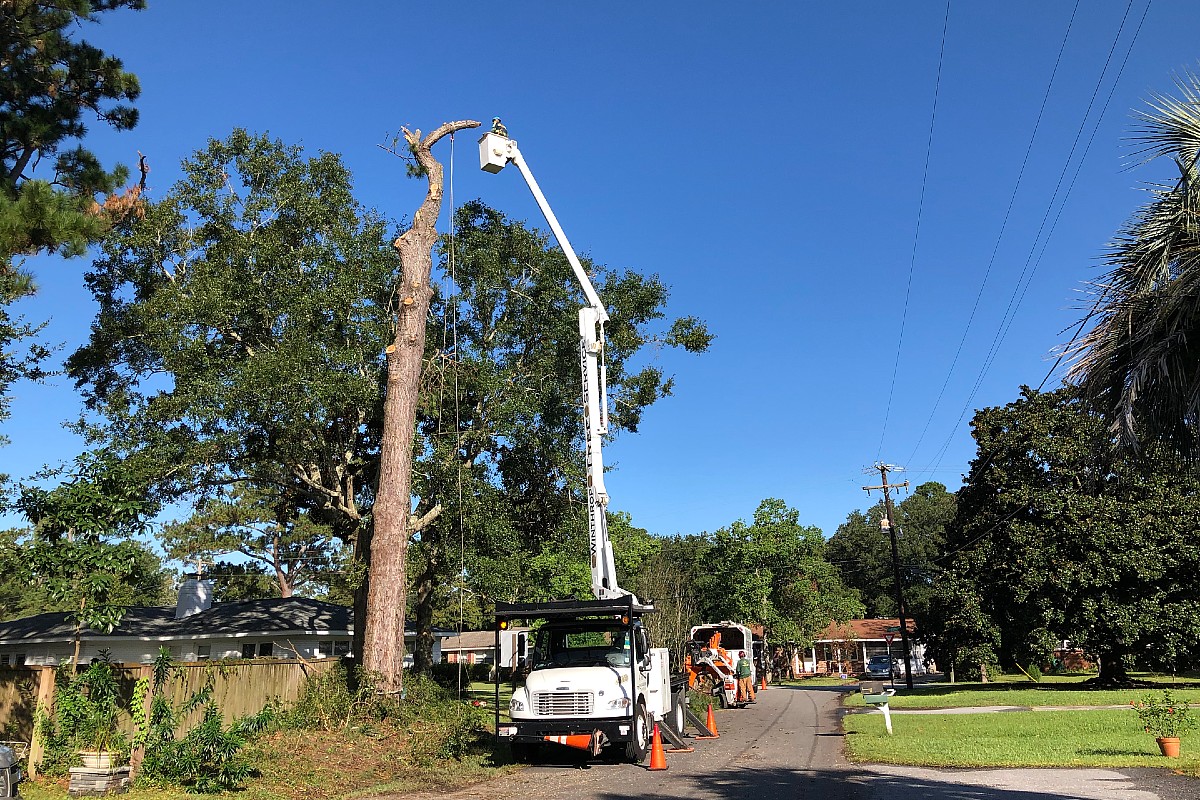

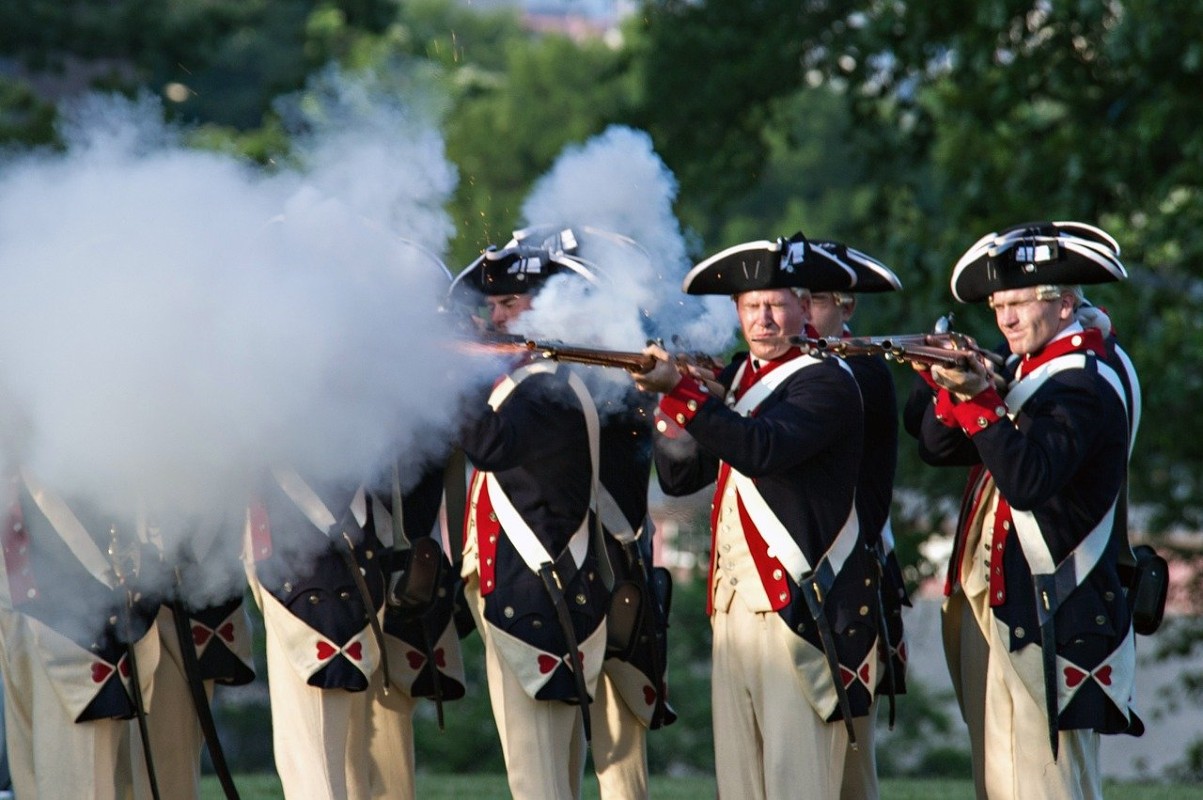
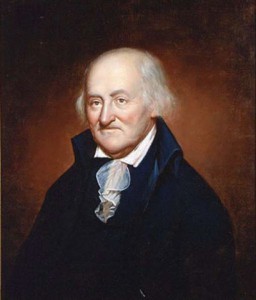

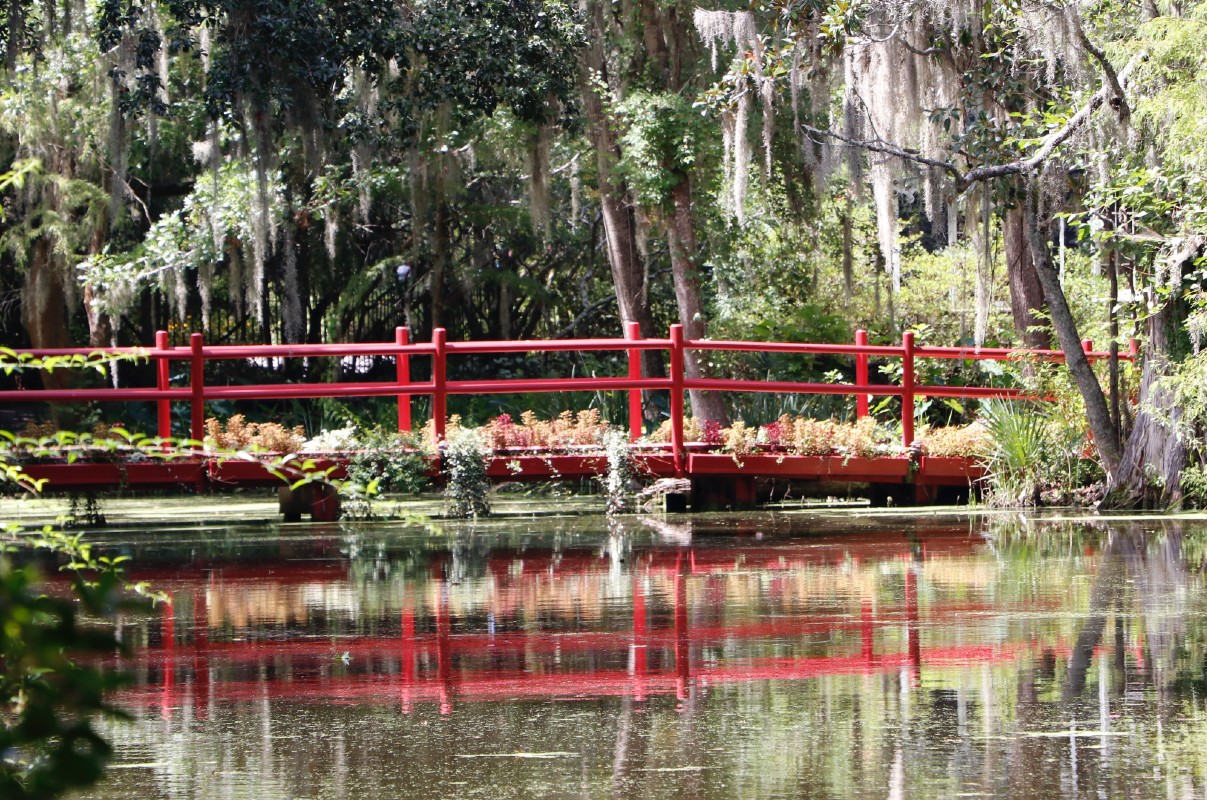

 We Can Do Better, South Carolina!
We Can Do Better, South Carolina!
























